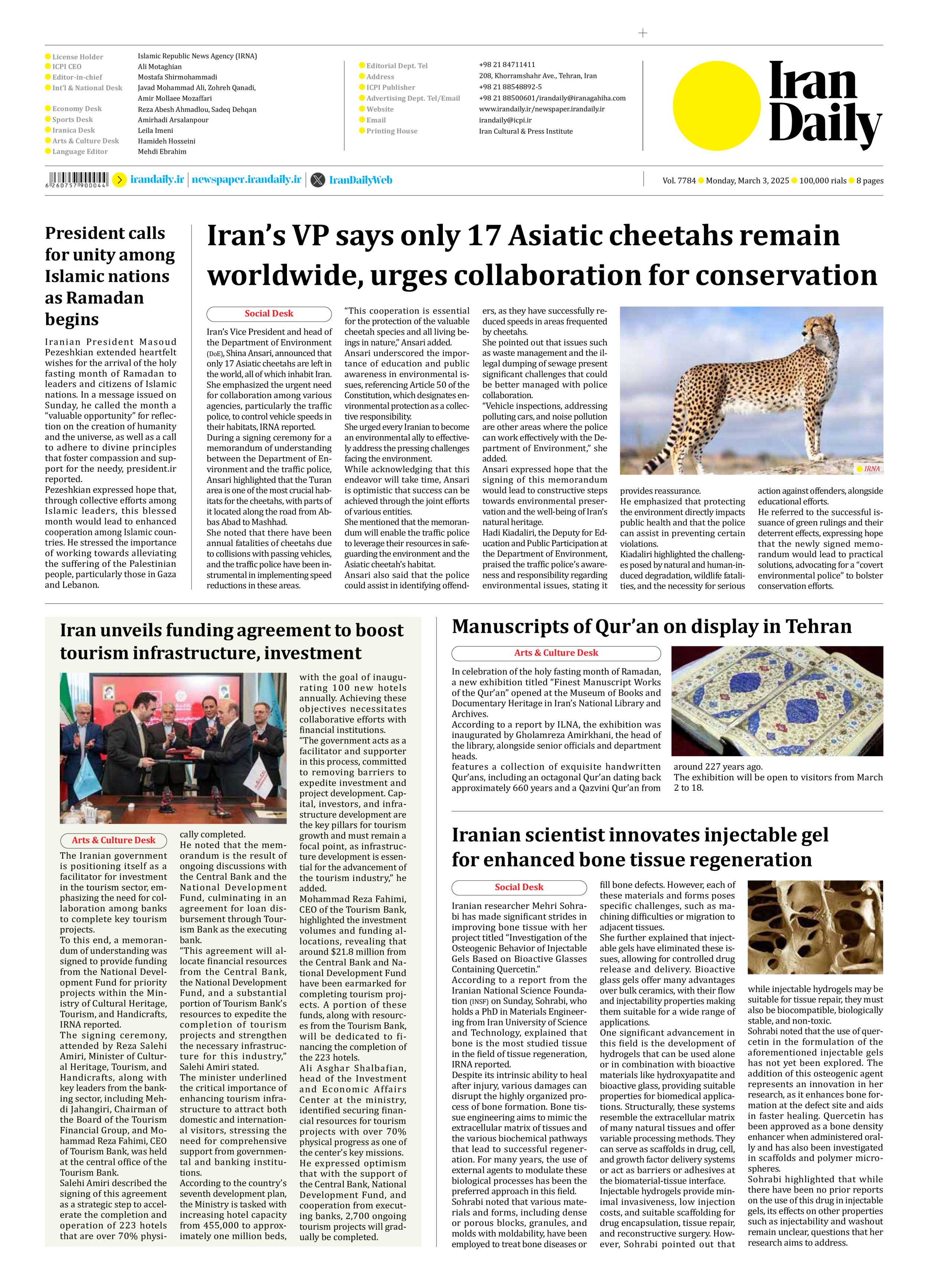
Copy in clipboard...
Iran’s VP says only 17 Asiatic cheetahs remain worldwide, urges collaboration for conservation
Iran’s Vice President and head of the Department of Environment (DoE), Shina Ansari, announced that only 17 Asiatic cheetahs are left in the world, all of which inhabit Iran.
She emphasized the urgent need for collaboration among various agencies, particularly the traffic police, to control vehicle speeds in their habitats, IRNA reported.
During a signing ceremony for a memorandum of understanding between the Department of Environment and the traffic police, Ansari highlighted that the Turan area is one of the most crucial habitats for the cheetahs, with parts of it located along the road from Abbas Abad to Mashhad.
She noted that there have been annual fatalities of cheetahs due to collisions with passing vehicles, and the traffic police have been instrumental in implementing speed reductions in these areas.
“This cooperation is essential for the protection of the valuable cheetah species and all living beings in nature,” Ansari added.
Ansari underscored the importance of education and public awareness in environmental issues, referencing Article 50 of the Constitution, which designates environmental protection as a collective responsibility.
She urged every Iranian to become an environmental ally to effectively address the pressing challenges facing the environment.
While acknowledging that this endeavor will take time, Ansari is optimistic that success can be achieved through the joint efforts of various entities.
She mentioned that the memorandum will enable the traffic police to leverage their resources in safeguarding the environment and the Asiatic cheetah’s habitat.
Ansari also said that the police could assist in identifying offenders, as they have successfully reduced speeds in areas frequented by cheetahs.
She pointed out that issues such as waste management and the illegal dumping of sewage present significant challenges that could be better managed with police collaboration.
“Vehicle inspections, addressing polluting cars, and noise pollution are other areas where the police can work effectively with the Department of Environment,” she added.
Ansari expressed hope that the signing of this memorandum would lead to constructive steps towards environmental preservation and the well-being of Iran’s natural heritage.
Hadi Kiadaliri, the Deputy for Education and Public Participation at the Department of Environment, praised the traffic police’s awareness and responsibility regarding environmental issues, stating it provides reassurance.
He emphasized that protecting the environment directly impacts public health and that the police can assist in preventing certain violations.
Kiadaliri highlighted the challenges posed by natural and human-induced degradation, wildlife fatalities, and the necessity for serious action against offenders, alongside educational efforts.
He referred to the successful issuance of green rulings and their deterrent effects, expressing hope that the newly signed memorandum would lead to practical solutions, advocating for a “covert environmental police” to bolster conservation efforts.







